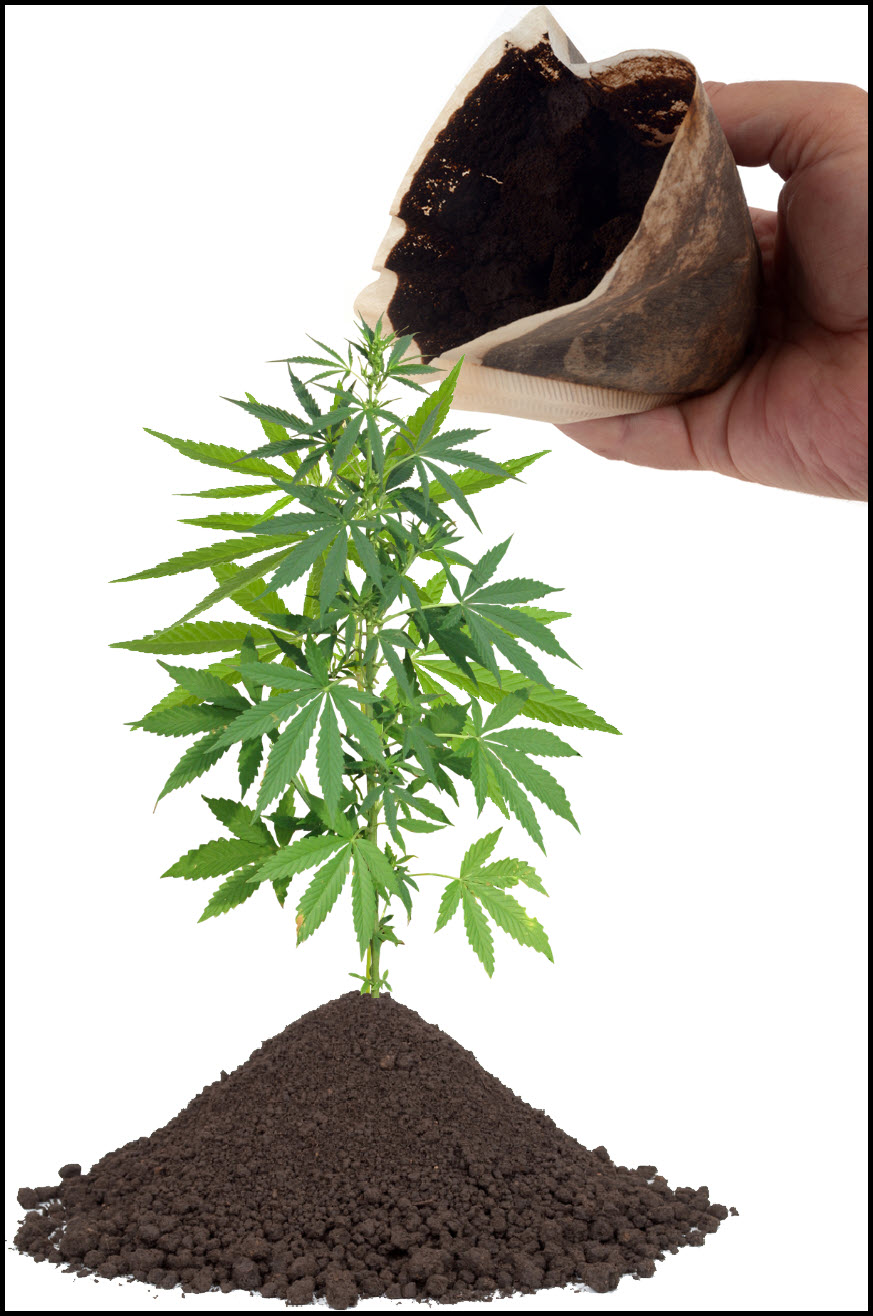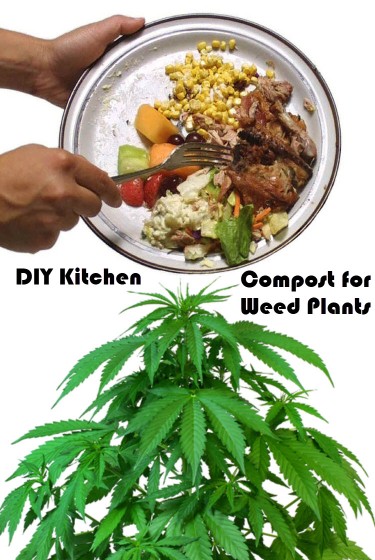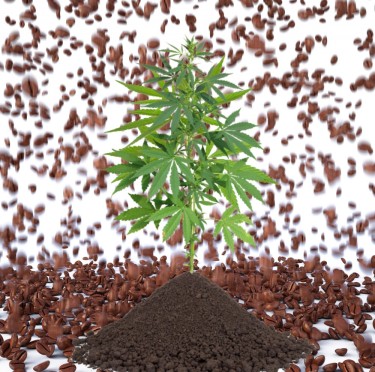
Should you dump your coffee grounds on your cannabis plants?
Organic cannabis cultivation has a lot to do with recycling. Instead of throwing away the coffee grounds after brewing a good coffee, they can be fed to plants, used to ward off parasites in gardens, reduce odors and more. Data shows that around 6 million tons of coffee waste is produced worldwide every year. That means our urban garden can never run out of coffee grounds.
Looking at the nutritional composition of coffee grounds, it is very rich in nitrogen which, when fed directly to nitrogen-poor plants, helps restore healthy growth. Aside from that, coffee grounds are also usually mixed with other minerals and fed to plants in the right proportion to restore the nutrient balance.
Many organic farmers simply sprinkle coffee grounds on the surface of the soil before watering, others mix them with the soil, and still others apply them around the plants. Regardless of the type of application, the aim is to provide the plants with a source of nitrogen.
However, many have argued that using coffee grounds presents a host of other problems. Many have argued that coffee beans contain pesticides that can be harmful to plants, while others also encourage mold growth. But let’s take a look at some facts and figures to see if these claims are true and how best to use coffee grounds in growing plants.
Nutrient composition of coffee grounds
Based on several agricultural studies and experiences of experienced organic farmers, coffee is a very good nitrogen fertilizer. Be it as a standalone organic fertilizer or as a component in a fertilizer blend.
Coffee grounds have a pH between 5.8 and 6.2, which is great for growing plants. It contains over 2% nitrogen, 0.6-1% potassium and 0.06-0.3% phosphorus. This nutrient composition makes her ideal for the flowering and growth phase. However, her low phosphorus levels may not live up to the high demands of the flowering phase. Therefore, big bloomers require more phosphorus from other sources.
Compared to other types of organic fertilizers, trace elements and macronutrients contained in coffee grounds are easily released and immediately available to plants. However, bacteria and fungi that reside in the soil take some time to break down the minerals and convert them into a usable plant.
One key nutrient that coffee grounds lack is calcium, a vital element that many plants love and need. But don’t worry, eggshells are often used in a mix of organic fertilizers to provide plants with the right amount of calcium, while coffee grounds provide the nitrogen they need.
Of course, coffee grounds are acidic, but when rinsed with enough water, their pH tends to rise, reaching as high as pH 6.5. The set can also be steeped in water and the resulting tea can be used to water and sprinkle the plant. Although this method is easy, sometimes the mixture can be too acidic for some plants. Therefore, coffee grounds in composted form are usually recommended as the best form of use, as they provide a balanced mix of the green part
Coffee grounds in composting
Many seasoned organic farmers recommend using coffee grounds in compost form rather than applying them directly to the soil. In compound form, coffee grounds become a component of green materials such as vegetables and fruits, which are then mixed with brown materials rich in carbon materials. This includes egg shells, chopped leaves, wood as is, and so on.
Composite material requires a mix of brown and green material. This allows the organic waste to heat up and decompose into nutrient-rich waste. Please note that coffee grounds should not make up more than 20% of the total compost volume.
Among various vegan ingredients used in organic fertilizer, coffee grounds have the highest nutrient composition of any. While some animal sources offer more potassium and nitrogen than organic compost, coffee grounds easily compete with most vegan compost sources.
However, when it comes to growing cannabis, some experts argue that there are better ways to fertilize the plant. Apart from that, the formulation of organic fertilizers requires a lot of attention and skill to avoid mixing the wrong fertilizer. Fertilizers, whether organic or not, can cause severe damage to plants when applied.
Therefore, like many growers testing fertilizers they have never used before, it is best to experiment with the fertilizer on a small batch of plants using different dosages and mixes. This way one can know the effect of the fertilizer on the plants before applying it to the entire cultivation.
OTHER USEFUL WAYS TO RECYCLE COFFEE GROUNDS
Aside from using ground coffee as a fertilizer in plant growing, thanks to its high nitrogen content, it also serves as a useful in other ways. Applied to soil, coffee grounds help refine soil texture and improve water infiltration both in fields and in pots. They also contain good nutrients that worms and various bacteria find beneficial when applied to outdoor soil.
The acidity of coffee grounds can play both positive and negative roles in the soil. While increased acidity is bad for plants, it can be more dangerous for animals, especially dangerous parasites in the soil. Finally, coffee grounds are micro-abrasive. The combination of sharp edges and acidity makes ground coffee very effective at keeping ants, snails, cats and snails away from plants.
Therefore, a practicing organic grower is well advised to spread coffee grounds as a barrier along the border of their crop. Other uses of coffee grounds? They can also be used as deodorants in refrigerators and cars, and can be used to clean your hands after handling smelly things like onions.
Conclusion
Knowing this, you are now armed to try coffee grounds in compost since they are readily available. You should at least consider doing some experimentation with composting and mixing different materials. This little extra effort alone can save you money and, most importantly, reduce municipal waste as little as possible.
COMPOSTING CANNABIS, READ MORE…

DIY COMPOSTING FOR YOUR CANANBIS PLANTS, READ THIS!
OR..

GROW COFFEE GROUNDS GREAT WEED WE ASKED READ THIS!

Post a comment: